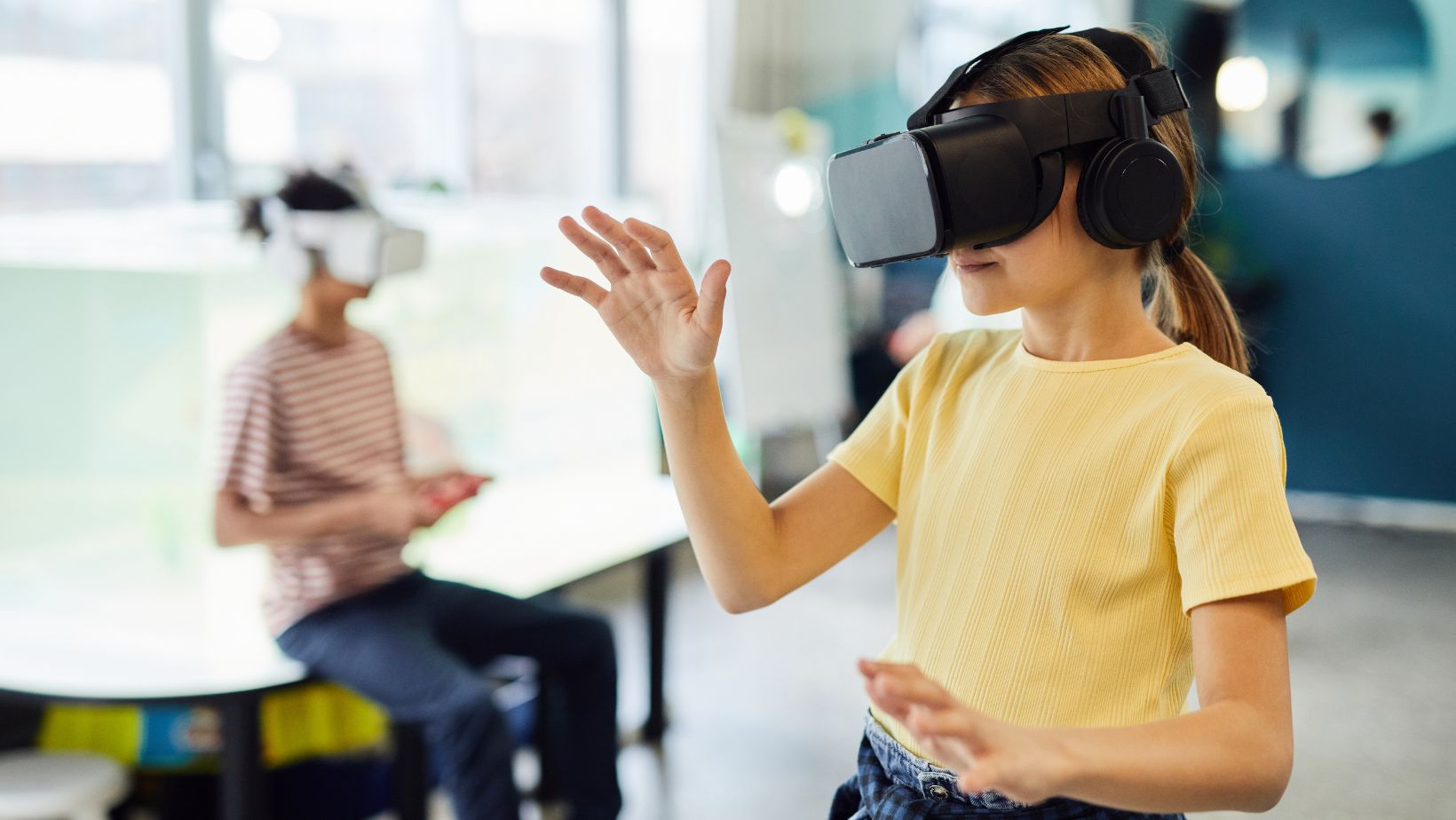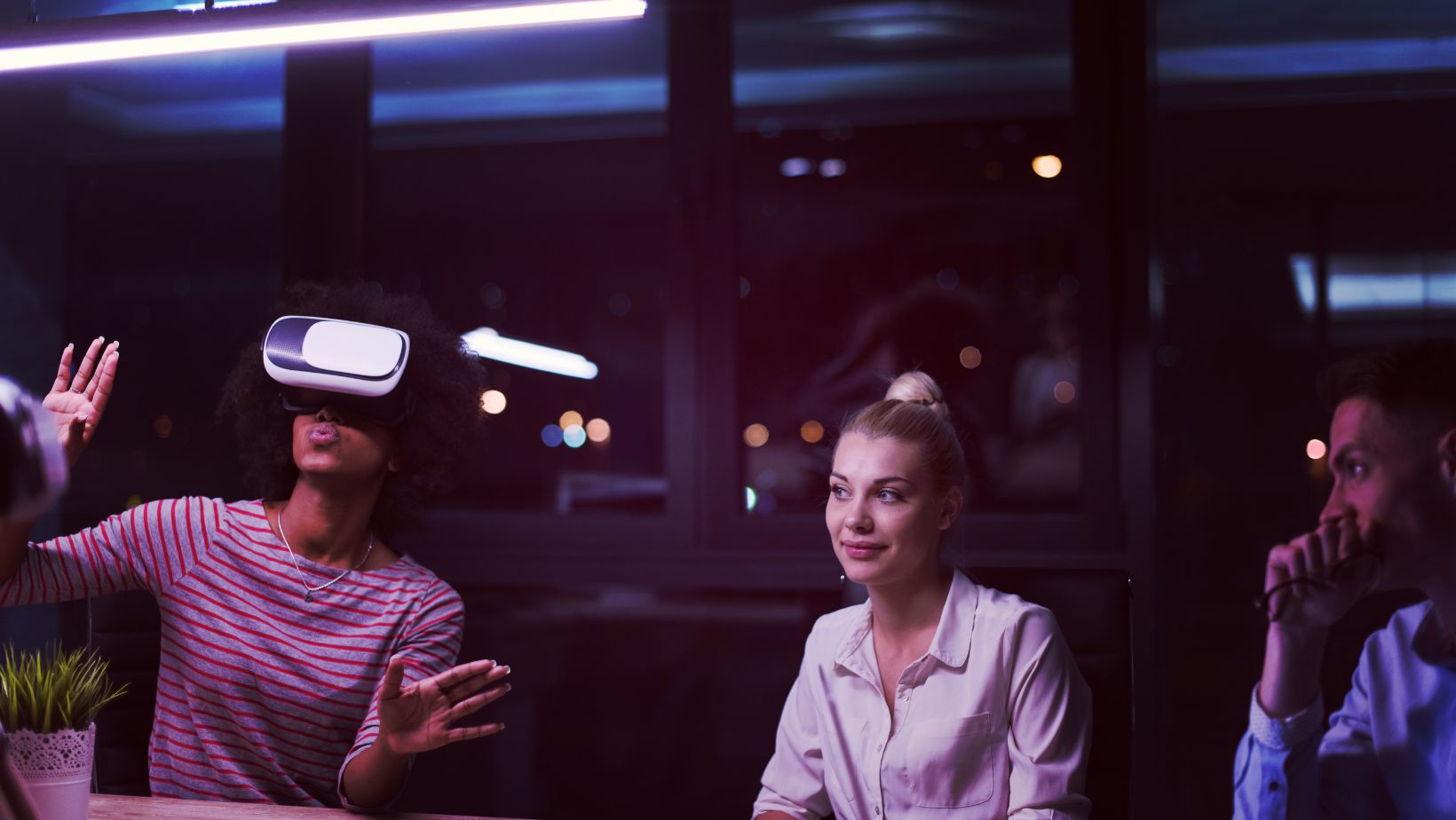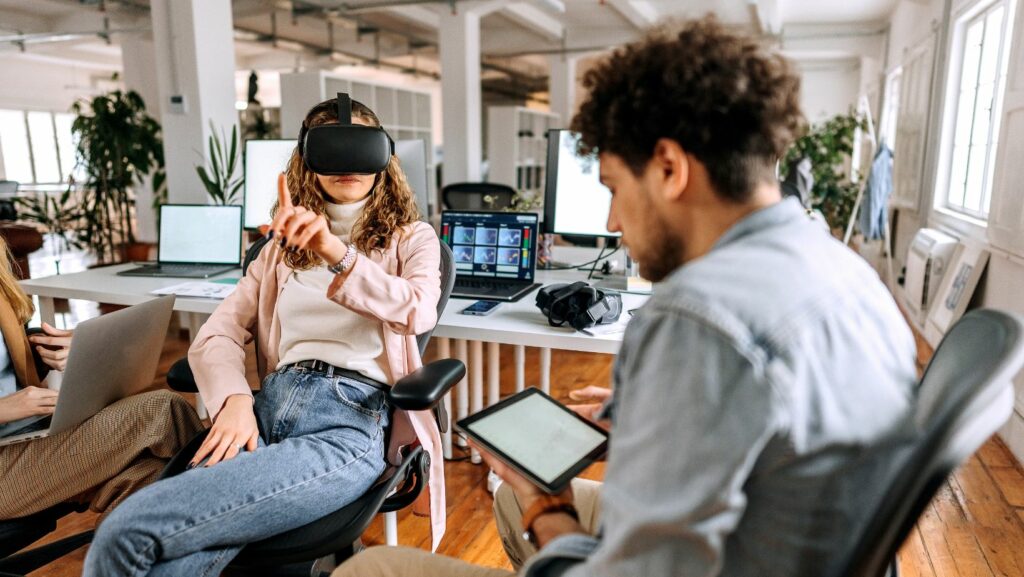It’s nothing short of amazing how many businesses in countless industries have already found viable use cases for virtual reality technology. Not only are businesses using VR to operate more efficiently, but they are also utilizing VR in their product offerings to customers. This has helped the average person experience the benefits of virtual reality much quicker than most anticipated. To get a better sense of how companies use VR, let’s look at some industries incorporating VR in the products and services offered directly to customers.
Architecture and Real Estate
While these two industries have distinctly different tasks, they are using VR in similar ways. In short, they are both able to give virtual tours of properties that are unbelievably realistic without actually being on the property. Architecture firms can actually create an interactive 3D model of a building before or during construction.

This gives a clear idea of what the property will look like and any changes that might need to be made before the project is complete. Likewise, real estate companies can give a VR tour of a property rather than trying to schedule an in-person tour, which can help expedite real estate transactions.
Online Casinos
Utilizing modern technology is a big reason why online casinos have become so popular. With technology, they can re-create an actual casino experience while simultaneously being accessible from anywhere using a mobile device. Online casinos can also offer a virtually endless selection of casino games because they are digital and don’t have the space restrictions of a casino floor. Some of these casino games, especially table games like poker and blackjack, utilize VR technology that makes players feel as if they are sitting at the table in the casino. This has made it that much easier for these online platforms to give customers a realistic casino experience from the comfort of home.
Entertainment
The entertainment industry was among the first to start utilizing VR technology, giving viewers a more realistic and interactive experience while watching movies and TV shows. Naturally, it remains a leader in practical applications of this and other emerging technologies.

Movie theaters are starting to adopt VR to differentiate from the home-viewing experience and make movie-goers feel as if they are part of the action on screen. Similarly, arcades are starting to offer more VR-based games to keep pace with some of the advancements that have made home consoles and online gaming so popular.
Interior Design
The entire retail industry is starting to incorporate virtual reality, but interior design, in particular, is doing a great job with it. VR not only transforms a home’s structural design but also enables users to replicate and experience interior designs in a fully immersive way. Companies can now offer visualization services that let users explore every aspect of a room, including color schemes, lighting, ventilation, and other specific design elements. Homeowners don’t have to close their eyes and imagine what changes to their interior design will look like. They can look at a VR rendition of how new furniture, paint, or other design changes will look before they move forward with a project.
Tourism
During the COVID-19 pandemic, the tourism industry needed technology like VR to help people re-create the experience of vacations that they couldn’t take. But even with travel possible again, the industry is making good use of VR. Rather than being a replacement for travel, tourism companies are using VR as a preview or selling point. With virtual reality, travelers can look at hotels, landmarks, and other possible destinations before they make their plans. This way, they will know exactly what to expect and where they want to go before paying for an expensive trip. Obviously, this helps travelers while helping the tourism industry keep its customers happy.

